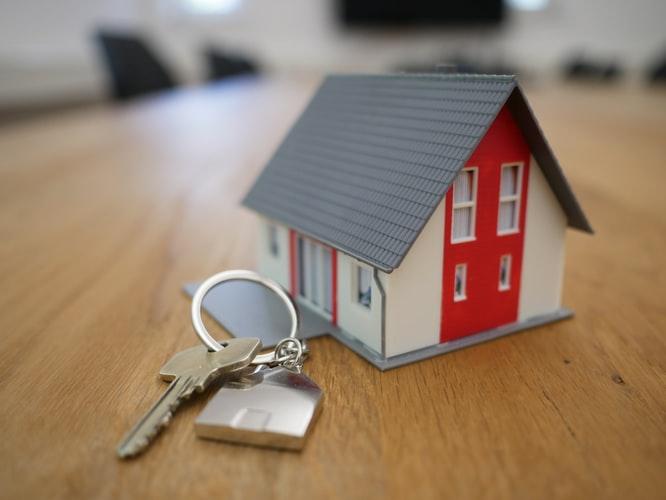Selling a property can be challenging, especially for first-time sellers. From gathering documents to finding potential buyers and managing visits, the process can become overwhelming.
To sell your home quickly and avoid common pitfalls, it’s essential to work with certified professionals. With the right guidance, you can make informed decisions throughout the process.
That’s where we come in. XpertSource.com connects you with a network of experienced real estate agents, mortgage brokers, building inspectors, appraisers and notaries. By sharing your project with us, you’ll receive personalized recommendations at no cost, ensuring you have the expertise you need every step of the way.
To help you start your selling project on the right foot, we have created this guide outlines 10 key steps for selling a property, designed to simplify your journey. Let’s dive in!
Get the PDF version of the article.

Identifying the right reasons to sell your property
Once the purchase offer is signed and accepted, modifying or cancelling the terms can be very challenging. It’s essential to feel confident in your decision before listing your property.
While everyone's reasons for selling are unique, here are the two most key reasons to sell a house.
The need for change
One of the primary reasons individuals decide to sell their property is the need for change. Some may sell to upgrade to a larger home or downsize to a smaller one. Others seek a different neighbourhood for a quieter or more vibrant lifestyle, while some have personal or professional motivations for moving.
Many people choose to sell due to the burdens and responsibilities of homeownership. By becoming tenants, they can save time on maintenance and reduce associated costs.
Additionally, many elderly individuals find it necessary to sell their homes because they can no longer manage them or because the homes no longer meet their needs. Some sell their property to help cover expenses related to assisted living or retirement homes.
A change in finances
In Quebec today, properties can be worth several hundred thousand dollars. Selling real estate is an effective way to quickly raise cash to fund personal or professional projects, such as starting a business. With many neighbourhoods experiencing significant appreciation in recent years, some individuals choose to sell to capitalize on the rising market.
Additionally, with the rising cost of living, some homeowners find they can no longer afford the expenses associated with maintaining their property, prompting them to sell.
---
As you can see, there are various reasons that may lead you to consider selling a property. The most important step is to take the time to reflect and determine whether it’s truly the right choice for your situation. Many professionals can offer valuable advice and help you make informed decisions, including real estate brokers, financial advisors, lawyers, and notaries.

STEP 1 - Enhancing your property appeal
If you’re considering selling your property as-is, it might be time to rethink your approach! Even if you feel your home is adequate, there’s always potential for improvement. The goal is to highlight your property’s best features.
To sell quickly, your home should look its best in photos and during showings. Consider setting aside a small budget to refresh the paint, replace worn furniture, or update the curtains. For the exterior, enhance the facade, mow the lawn, and trim the bushes. These small touches can make a big difference.
Whether you choose to sell on your own or work with a real estate agent, investing in a professional photographer for high-quality images is a smart move. Many agents even include this service in their contracts to boost their chances of finding a buyer quickly.
Good to know
To attract buyers, it’s important to refine your interior decor and create a neutral ambiance. This is a key principle of home staging. Remove any eccentric decorations that might not appeal to everyone, allowing potential buyers to easily envision themselves in the space.

STEP 2 - Carrying out a presale inspection
Having your property inspected by a professional is crucial to ensure you’re selling a home in good condition. A presale inspection involves assessing the visible components and accessible elements of various systems within the home such as plumbing, heating, roofing, and insulation to identify any potential problems or hidden defects. This process not only helps you understand existing issues but also gives you the opportunity to address them promptly.
Having your home inspected by a professional is one of the best ways to protect yourself from potential lawsuits after the sale. With thorough documentation, you'll have clear evidence of which issues were identified during the inspection and which were not.
The buyer can also hire a professional for a pre-purchase inspection to verify the condition of the home before finalizing the sale, although this step usually takes place after the purchase agreement has been signed.

STEP 3 - Assessing the market value of the house
Your property has likely appreciated in value since you purchased it, especially if you've made renovations. To determine its true worth, it’s recommended to hire a certified appraiser.
By hiring an appraiser who is a member of the Ordre des évaluateurs du Québec (OEAQ), you’ll obtain a precise estimate of your property’s market value. These professionals offer an impartial assessment since they have no vested interest in the sale.
After visiting your home, the appraiser will use the information collected to estimate its value based on various factors, including its overall condition, location, size, and amenities.
Additionally, the appraiser will create a list of comparable homes that have recently sold in your area and assess the supply and demand in your neighbourhood before delivering a comprehensive evaluation report.
Good to know
If you’re working with a real estate broker to sell your home, they can evaluate its market value at no upfront cost since they earn a commission upon sale. By using real estate statistics and comparable properties, the broker provides a reliable estimate for setting a competitive selling price, even though he does not produce a formal report like a certified appraiser.

STEP 4 - Getting a location certificate
The location certificate is a document that attests to the current status of a real estate property with regards to its title, the land register, and any applicable laws and regulations. This report includes details about the building’s dimensions, as well as features like pools, exterior siding, doors, and windows.
All elements must remain unchanged from the moment the land surveyor issues the location certificate until the sale is finalized. If you plan to renovate the home before selling, make sure all work is completed before hiring a land surveyor.
It’s also important to note that only a land surveyor who is a member of the Ordre des arpenteurs géomètres du Québec (OAGQ) is authorized to perform land surveying and provide a location certificate.
Good to know
In principle, the location certificate remains valid as long as it accurately reflects the current conditions of the property. However, it’s common for these certificates to be considered valid for about ten years. Your notary can help determine whether your location certificate is still valid or need to be updated.
STEP 5 - Gathering essential documents
Once your home is on the market, potential buyers may start expressing interest right away. It’s essential to have all the necessary documents ready from the visits, as some can take time to obtain. Key documents include:
- Presale inspection report.
- School and municipal tax statement.
- Co-ownership declaration (for condominium).
- Evaluation report from a certified appraiser.
- Utility bills such as electricity, gas and home insurance.
- Location certificate.
- Home renovation invoices for work completed over the years.
- Purchase contract proving your ownership of the property.

STEP 6 - Listing the house on the market
When it comes to listing your home, some people choose to handle the process themselves, while others prefer to work with a real estate agent. According to the Fédération des chambres immobilières du Québec (FCIQ), 7 out of 10 transactions in Quebec are facilitated by a real estate broker, and for good reason. The benefits of hiring a professional to sell your home are numerous:
- Save time: a broker handles marketing, responds to inquiries, and coordinates visits, freeing up your schedule.
- Peace of mind: enjoy a smoother selling process with reduced stress.
- Expert advice: receive personalized guidance and advice from a knowledgeable real estate professional.
- Negotiation skills: leverage the strong negotiations and persuasion skills of an experienced agent.
- Targeted marketing: reach the right audience to attract interested buyers.
- Visibility: increase exposure through for-sale signs, online ads, and social media.
- Serious buyers: quickly connect with motivated buyers for showings.
- Legal protection: enjoy protection under the Real Estate Brokerage Act when you work with a broker who is a member of the Organisme d’autoréglementation du courtage immobilier du Québec (OACIQ).

STEP 7 - Managing visits
If you’re working with a real estate agent, your main task during this step is to ensure the home is clean and presentable. It’s advisable to leave during the visits, so potential buyers can feel more comfortable exploring the space. Trust your agent; they know how to highlight your home’s best features.
If you choose to manage the visits yourself, allocate 30 to 60 minutes for each showing. Be prepared for potential buyers to ask various questions to determine if the home meets their needs. Common questions may relate to energy consumption, home insurance, or municipal taxes, so it’s important to have relevant documents readily available.
Initial visits can be critical. If you don’t see positive results after these showings, you might want to consider hiring a real estate agent to help sell your home more quickly.
Good to know
If you have pets, make sure the litter box is thoroughly cleaned and there are no unpleasant odours. It may also be a good idea to keep pets outside during visits, as not everyone may feel comfortable around them, no matter how adorable they are!

STEP 8 - Choosing your buyer
After the visits, you may have several potential buyers expressing interest, but it's essential to ensure they are serious. Experienced real estate agents can quickly identify candidates worth considering. Your goal should be to express interest swiftly before they make an offer on another property.
Buyers with a pre-approved mortgage are particularly appealing, as this indicates they have already begun the mortgage process and know how much the bank is willing to lend. In fact, many real estate agents now require buyers to have pre-approval before allowing them to view a property.
How can you recognize a good candidate? A good candidate:
- Asks questions during the viewings.
- Possesses a mortgage pre-approval.
- Is eager to buy quickly.
- Has recently sold their home.
- Contacts you within 24 to 48 hours after the viewing.
- Requests a second visit.
- Inquires about the neighbourhood.
- Has explored other homes in the area.
Good to know
Once you've hosted visitors at your property, multiple people may submit purchase offers. It's crucial to know how to choose the right candidate by evaluating the seriousness of their intentions.

STEP 9 - Accepting the purchase offer
When a buyer is interested, they will submit a purchase offer. This document outlines the amount they're willing to pay for your home and includes the various conditions of the sale. You have the option to accept, reject, or make a counteroffer.
If the offered price is lower than your asking price, your real estate agent will assist you in making an informed decision. They might suggest accepting the offer or advise you to wait for a buyer who can present a more favourable price.
Accepting a purchase offer signifies your commitment to selling the home to the buyer based on the terms outlined in the document. After acceptance, neither you nor the buyer can withdraw without mutual consent.

STEP 10 - Finalizing the transaction in front of a notary
The final step in selling your property is signing the deed of sale before a notary. The buyer is responsible for selecting the notary and covering their fees. They will coordinate with you or your real estate agent to outline the process.
The notary serves as a public officer with extensive knowledge of real estate laws. The documents they prepare are authentic and legally binding in court. They can also offer valuable advice as you make important decisions throughout the transaction.
The notary’s primary role is to help you avoid potential issues during the sale. They will ensure that all documents from both parties are consistent and safeguard the funds involved in the transaction. Once the deed of sale is signed, you will have officially sold your house! Congratulations!
Expenses to consider when selling your house
1. Real estate photographer
Hiring a professional photographer can help you showcase your property effectively with high-quality images. This service usually costs around $200 for a one-hour session, which includes retouched photos.
However, many real estate agents offer this service at no extra charge for you when you enlist their help.
2. Interior designer
If your interior isn’t quite what it should be, and you don’t have the time or motivation to improve it yourself, hiring an interior designer can be an excellent solution. With hourly rates between $60 and $150, these professionals can transform your space, making it more attractive to potential buyers.
3. Certified appraiser
Hiring a certified appraiser is essential for determining your home's true value before setting a selling price. Depending on their experience, the cost for an appraisal typically ranges from $300 to $500. This investment can help ensure you price your property appropriately.
4. Building inspector
When hiring a building inspector, expect to pay between $240 and $400 for a condo, and between $450 and $550 for a single-family home. Prices can increase to $625 for a duplex, $700 for a triplex, and may reach up to $1,000 for larger properties. This assessment can help identify any issues before you sell.
5. Land surveyor
The cost for a location certificate is set at $1,260 by the Ordre des arpenteurs-géomètres du Québec (OAQG). However, individual land surveyors have the flexibility to establish their own rates, so prices may vary slightly.
6. Real estate agent
The commission for a real estate agent typically ranges from 4% to 7% of the home's selling price. This commission is shared with the buyer’s agent, if applicable. The remaining funds are used to cover expenses related to the sale, such as photography, advertising, and marketing, as well as the agent's time spent on the sale process.
Renovating your home before selling: is it advantageous?
If your property is a bit dated, completing a few renovations before selling can help you sell it more quickly. This not only attracts buyers but may also increase your home’s value, allowing for a better selling price. The costs of these renovations are often recouped after the sale.
Such projects could include modernizing the bathroom, updating the kitchen, or replacing flooring. In any case, make sure to get quotes from experienced contractors. Comparing estimates will help you find the best price-to-quality ratio for your renovations.
Make sure to complete all renovations before listing your home, as buyers typically avoid properties that require significant updating. Additionally, allow sufficient time between finishing the work and starting showings, since delays and unexpected issues are common in renovation projects.
Pitfalls to avoid when selling a property
Selling a property can be complex, so it’s essential to navigate the process carefully. Here are some key pitfalls to avoid:
-
Ensure your building inspector has insurance covering errors and omissions in their inspections.
-
Use the services of a notary to ensure the sale is conducted properly and to formalize the real estate transaction.
-
If there are multiple interest buyers, take the time to carefully evaluate each offer. You will have a limited timeframe (24 to 72 hours) to select the best candidate. Once the purchase offer is signed and accepted, altering the terms or cancelling the agreement can be quite challenging.
-
Set a realistic price when marketing your property to avoid deterring potential buyers.
-
Select a real estate broker who is familiar with your residential area. Ensure they have successfully completed multiple transactions in your neighbourhood.
-
The Real Estate Brokerage Act allows you to terminate a brokerage contract within three days of receiving the document, without having to provide a reason. This is known as the right of withdrawal.
-
Make sure to hire a broker who is licensed by the Organisme d’autoréglementation du courtage immobilier du Québec (OACIQ). Otherwise, you won’t be protected by the Real Estate Brokerage Act in case of issues.
-
Regardless of the verbal condition provided by your broker, it is crucial to thoroughly review your brokerage contract before signing. If any terms appear unclear, be sure to ask your broker for clarification.
-
The land surveyor responsible for providing your location certificate must be a member of the Ordre des arpenteurs-géomètres du Québec (OAGQ).
-
Make sure the certified appraiser you work with is a member of the Ordre des évaluateurs agréés du Québec (OEAQ).
Are you looking to sell your property?
XpertSource.com can help you find a real estate broker. When you tell us about your project, we put you in touch with qualified resources for free. Simply fill out our form (it only takes a few minutes) and we will connect you with professionals.

